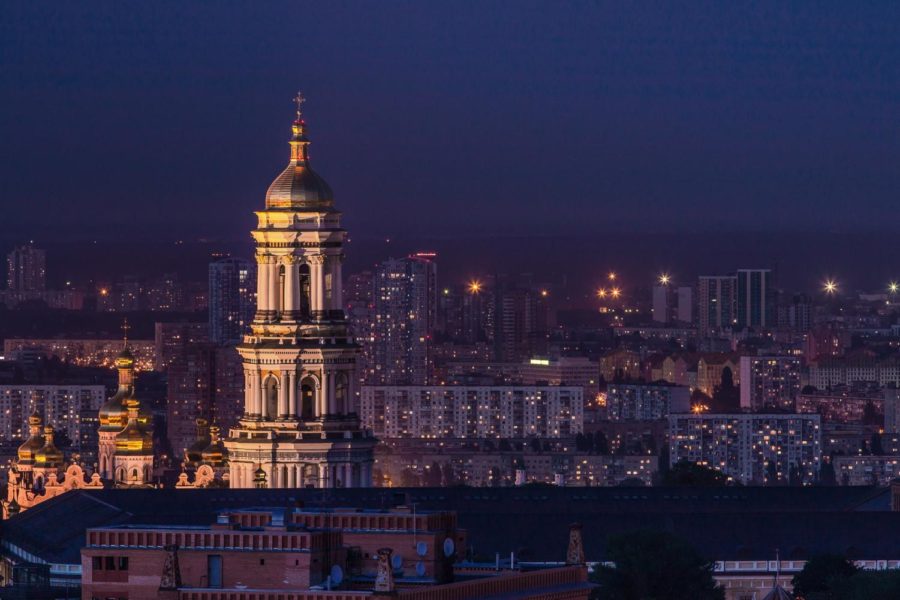Mauren: U.S. cannot blink in the face of Russian aggression
Columnist Jacob Mauren explains why the U.S. and NATO must stand their ground against Russian aggression toward Ukraine.
January 25, 2022
The Western world has been on edge lately as fears of a war in Europe grow. But if the United States and NATO refuse to blink in the face of Russian aggression, a conflict may be avoided.
In November of 2021, the first reports arrived of Russian troops and equipment gathering near the eastern border of Ukraine. This immediately set off alarms for the Eastern European country, as it has already faced a Russian annexation of the Crimean peninsula as well as a Russia-backed separatist insurgency in its Eastern regions.
Tension continued to build as talks between the U.S. and Russia repeatedly failed to find any diplomatic solutions. Just this January, Russia has sent troops to Ukraine’s northern neighbor to conduct war games, the U.S. State Department has ordered the families of diplomats to leave the Ukrainian embassy, NATO has moved military forces closer to the contested region and the United States has put 8,500 troops on heightened alert.
There are a lot of discussions about whether Western powers should be involved in this situation at all. I believe that as the world takes on this threat, the United States and NATO as a whole should not back down.
In debating if involvement is needed, we should look at what the path inaction leads us to. I have little doubt that without any Western response, Russia would happily invade and annex as much of Ukraine as they could get their hands on. Russian President Vladimir Putin is a former member of the Soviet KGB and a proud nationalist. He is known to have a strong desire to rebuild Russian pride, and reclaiming former Soviet land would be a favorable move for him.
Inaction would also see the fall of a European democracy in an age where democracy is becoming weaker across the globe. Not to mention that a successful invasion would lead to an emboldened, territorially aggressive Russia on the steps of NATOs border.
But the clearest point for me is that Russia cannot endure a conflict with NATO, and I believe this troop buildup was a way of testing NATO’s tolerance.
As much as Putin wants to role play Russia as the late Soviet Union, contemporary Russia does not hold a candle to NATO. Together, NATO spends around $1 trillion on defense annually, compared to Russia’s $65 billion. Economically, Russia has a GDP lower than multiple individual members of NATO and is greatly reliant on its energy exports to Europe. Should a conflict break out and energy trades be halted, Russia would instantly face an economic crisis.
If the United States and our allies make it clear that an invasion will be responded to, I cannot see an invasion happening. We have the opportunity to both secure a democratic country and keep an increasingly restless Russia at bay. Making it clear that NATO will defend Europe is the most likely way to avoid conflict.

















